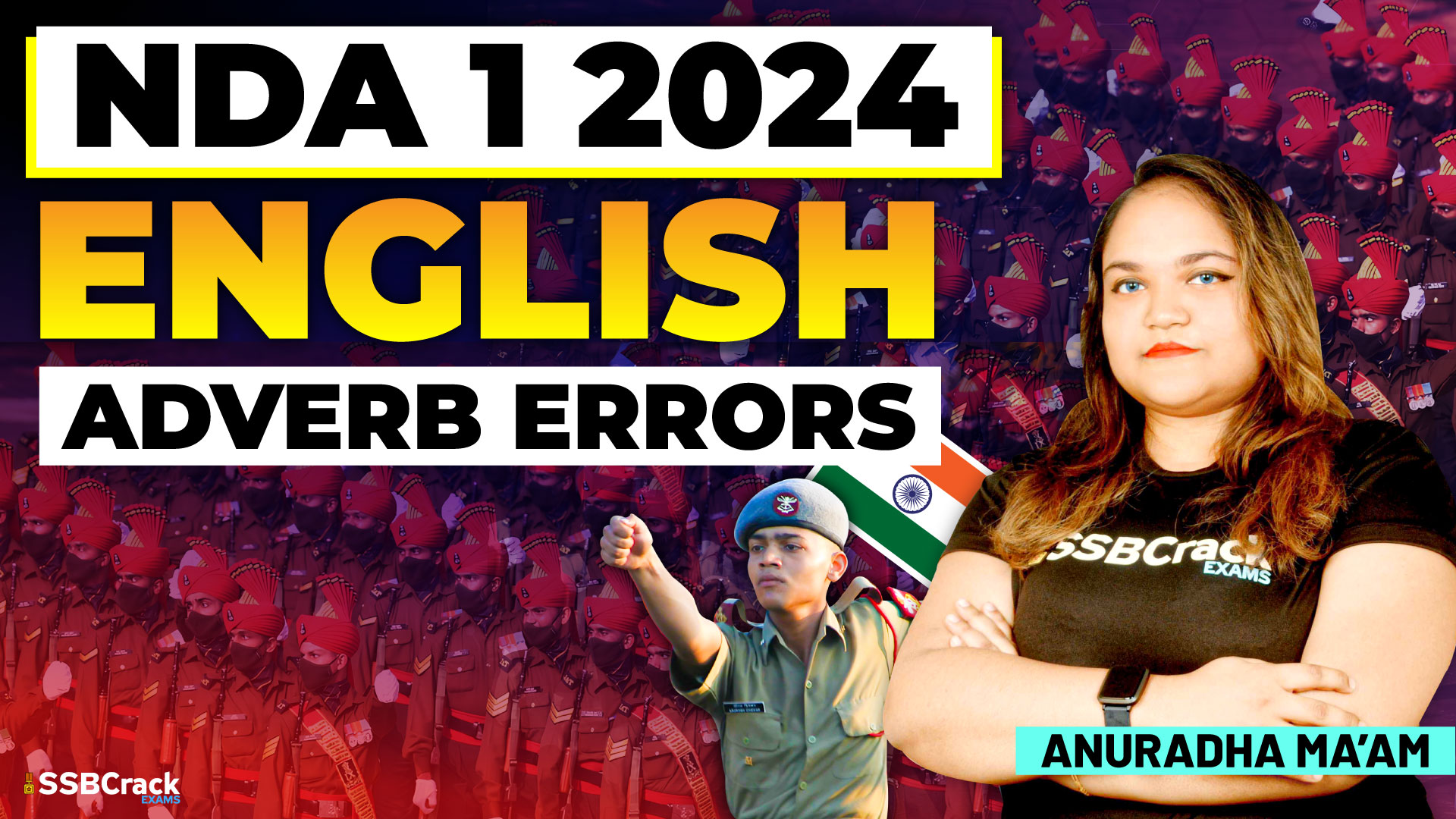The National Defence Academy (NDA) examination stands as a rigorous evaluation for individuals aspiring to serve in the esteemed armed forces. Within the English section of the examination, a thorough understanding of grammar is imperative, with Adverbs playing a pivotal role. This article aims to underscore the importance of mastering Adverbs, shedding light on their rules and highlighting various Adverb errors that NDA aspirants should be wary of while preparing for the exam.
- The Role of Adverbs in Communication:a. Modifying Verbs: Adverbs serve to modify verbs, providing additional information on how an action is performed. For instance, in the sentence “The soldiers marched tirelessly,” the adverb “tirelessly” describes the manner in which the soldiers marched.b. Describing Adjectives: Adverbs can also modify adjectives, enhancing the descriptive quality of nouns. In the phrase “an exceptionally skilled pilot,” the adverb “exceptionally” adds intensity to the adjective “skilled.”c. Modifying Other Adverbs: Adverbs can modify other adverbs, contributing to a more nuanced description. For example, in the phrase “He spoke very confidently,” the adverb “very” modifies the adverb “confidently.”d. Expressing Frequency and Time: Adverbs play a crucial role in expressing frequency (“always,” “sometimes”) and time (“now,” “later”), providing clarity and precision in communication.
- Common Adverb Errors to Beware Of:a. Incorrect Placement: One common error is the incorrect placement of adverbs. For instance, the sentence “He quickly solved the problem” is correct, while “He solved quickly the problem” is not.b. Misuse of Adverbs and Adjectives: Confusing adverbs with adjectives is another pitfall. For example, saying “She performed the task real good” should be corrected to “She performed the task really well.”c. Double Negatives: Using double negatives with adverbs can create confusion. Instead of saying “I can’t never forget that day,” it should be “I can never forget that day.”d. Overusing Intensifiers: Overusing intensifying adverbs like “very” or “extremely” can dilute their impact. Aspirants should strike a balance to avoid redundancy.e. Incorrect Adverb Forms: Understanding the correct forms of adverbs, especially irregular ones, is crucial. For example, using “good” instead of “well” in “She performed the task good” is incorrect.
- Rules and Usages of Adverbs in English Sentences:a. Adverb Placement with Verbs: Adverbs typically come after the verb they modify. For example, “The soldiers trained rigorously.”b. Adverb Placement with Adjectives: When modifying adjectives, adverbs usually come before the adjective. For instance, “She was a very talented musician.”c. Adverb Placement with Other Adverbs: Adverbs that modify other adverbs often come before the adverb they are modifying. For example, “He spoke very confidently.”d. Avoiding Double Negatives: The use of double negatives is discouraged in standard English. For instance, instead of saying “I can’t never forget,” it should be “I can never forget.”
- Importance of Adverbs in NDA Examination:a. Communication Clarity: In the military, clear and concise communication is crucial. Mastery of adverbs ensures that officers can convey instructions and reports with precision.b. Grammatical Correctness: The NDA examination assesses grammatical correctness, and errors in adverb usage can impact the overall language proficiency score.c. Dynamic Use in Fill in the Blanks and Sentence Correction: Adverbs often feature in Fill in the Blanks and Sentence Correction questions. Understanding their correct usage is key to excelling in these sections.
- Strategies for Mastering Adverbs:a. Comprehensive Study of Adverb Rules: Aspirants should delve into the rules governing adverbs, including their placement and different forms.b. Active Practice: Regularly practicing sentences and exercises that involve adverbs in various contexts reinforces correct usage.c. Contextual Reading: Actively reading military literature exposes aspirants to correct adverb usage in relevant contexts, aiding in a more intuitive understanding.d. Feedback and Revision: Seeking feedback from peers or instructors on written exercises contributes to improvement, and regular revision helps in retaining learned rules.
Conclusion:
In conclusion, a strong command of adverbs is indispensable for NDA aspirants aiming for success in the English section of the examination. By understanding the rules governing their usage and practicing in various contexts, aspirants can strengthen their linguistic skills. Mastery of adverbs not only ensures success in the NDA examination but also prepares candidates for effective communication in the dynamic and challenging environments inherent to a career in the armed forces.







